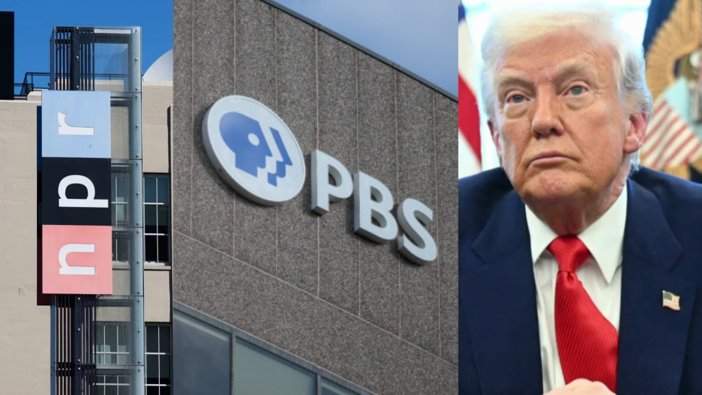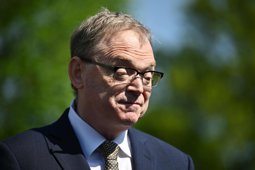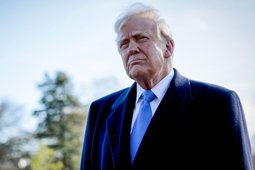
Trump Pushes $9.4B Cuts to NPR, PBS, USAID
Trump sends $9.4B spending cut plan to Congress targeting NPR, PBS, and USAID; GOP leaders aim for swift action.
Rescissions Package Sets Stage for Congressional Spending Showdown
President Donald Trump has submitted a $9.4 billion federal rescissions package to Congress, targeting funding for NPR, PBS, and the U.S. Agency for International Development (USAID). The proposal, which activates a 45-day countdown for congressional action, is part of Trump’s broader effort to streamline government spending through the Department of Government Efficiency (DOGE).
The rescissions package, a tool authorized by the 1974 Impoundment Control Act, enables the White House to recommend clawbacks on federal appropriations while requiring congressional approval. Debate time is limited to two hours in the House and ten hours in the Senate, with passage requiring only a simple majority of 51 votes in the upper chamber.
According to administration officials, this marks the first in a series of potential cost-cutting efforts designed to eliminate programs deemed wasteful. Office of Management and Budget (OMB) Director Russell Vought indicated the administration may send additional packages depending on the outcome of this initial push. “We’re very open to sending multiple bills,” Vought said following a meeting with House Speaker Mike Johnson.
The rescissions initiative coincides with Republican efforts to advance a major tax and immigration bill by July 4, making efficient use of procedural tools like budget reconciliation and rescissions to bypass filibusters. GOP leaders have pledged to move swiftly, but party divisions may complicate final passage, particularly in the narrowly held House.
NPR and PBS Face Renewed Defunding Push
Among the most controversial elements of the rescissions proposal is the elimination of federal funding for NPR and PBS. Rep. Ronny Jackson, R-Texas, welcomed the plan, calling it the culmination of his repeated efforts to defund what he described as “taxpayer-funded propaganda arms of the radical Left.”
“Since being elected to Congress, I’ve led the charge to defund NPR and PBS,” Jackson stated. “They are now nothing more than another fake news media outlet.” He praised Trump’s leadership, adding, “I’m excited to codify the DOGE package that finally cuts off their funding.”
Jackson’s remarks follow a March congressional hearing where NPR CEO Katherine Maher admitted the organization mishandled coverage of Hunter Biden’s laptop, saying, “We were mistaken.” She also apologized for past inflammatory comments about President Trump, which she characterized as “regretful.” PBS was also criticized during the hearing for airing content like “Real Boy,” a documentary exploring gender identity.
Rep. Marjorie Taylor Greene, R-Ga., said the hearing revealed a disconnect between public broadcasters and everyday Americans. “The American people will not continue to allow such propaganda to be funded through the federal government with their hard-earned tax dollars,” she asserted.
Despite strong conservative support, some Republicans expressed caution. One House member noted the political risk of appearing to defund popular children’s programming, saying, “There are some moderates in our conference who don’t want an ad written that they’re defunding Big Bird.”
Nevertheless, the House Freedom Caucus and the Republican Study Committee have released statements calling for immediate passage. “This first rescissions package from President Trump is a test,” said Paul Winfree of the Economic Policy Innovation Center. “If Congress can’t deliver, it’s a signal for the president to turn up the dial with other tools at his disposal.”
As the 45-day window opens, lawmakers now face competing pressures: to fulfill conservative promises of fiscal discipline while navigating the optics and political consequences of defunding public media institutions with long-standing public support.






